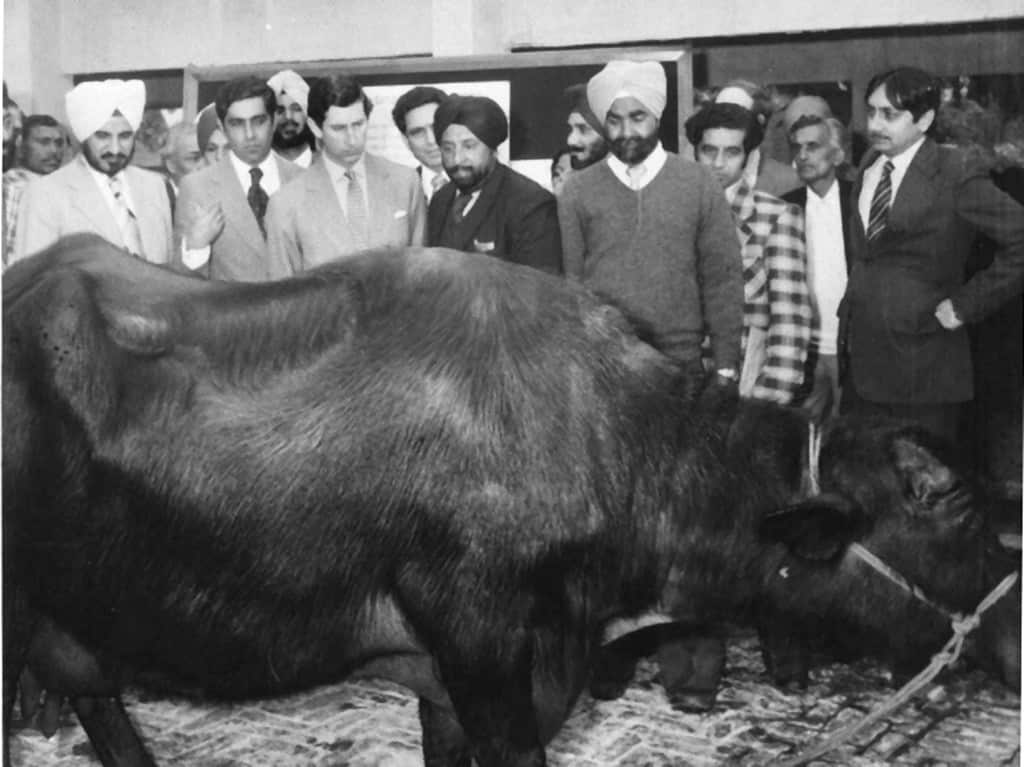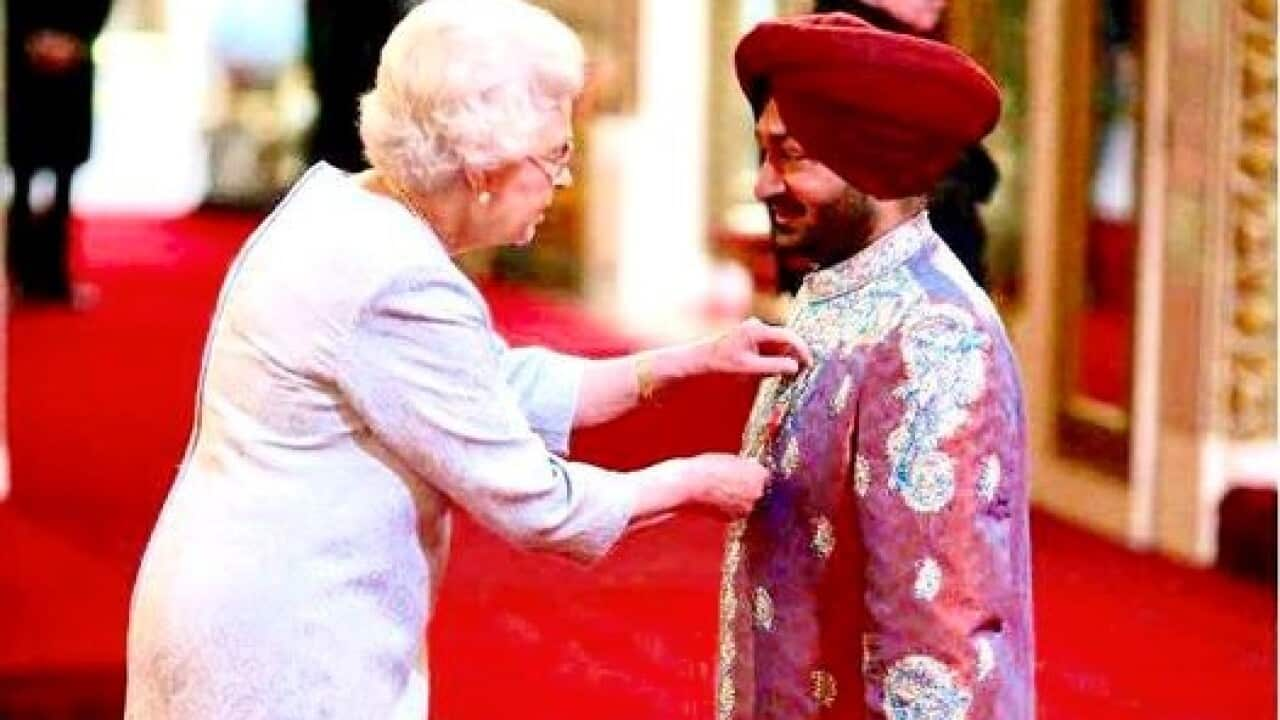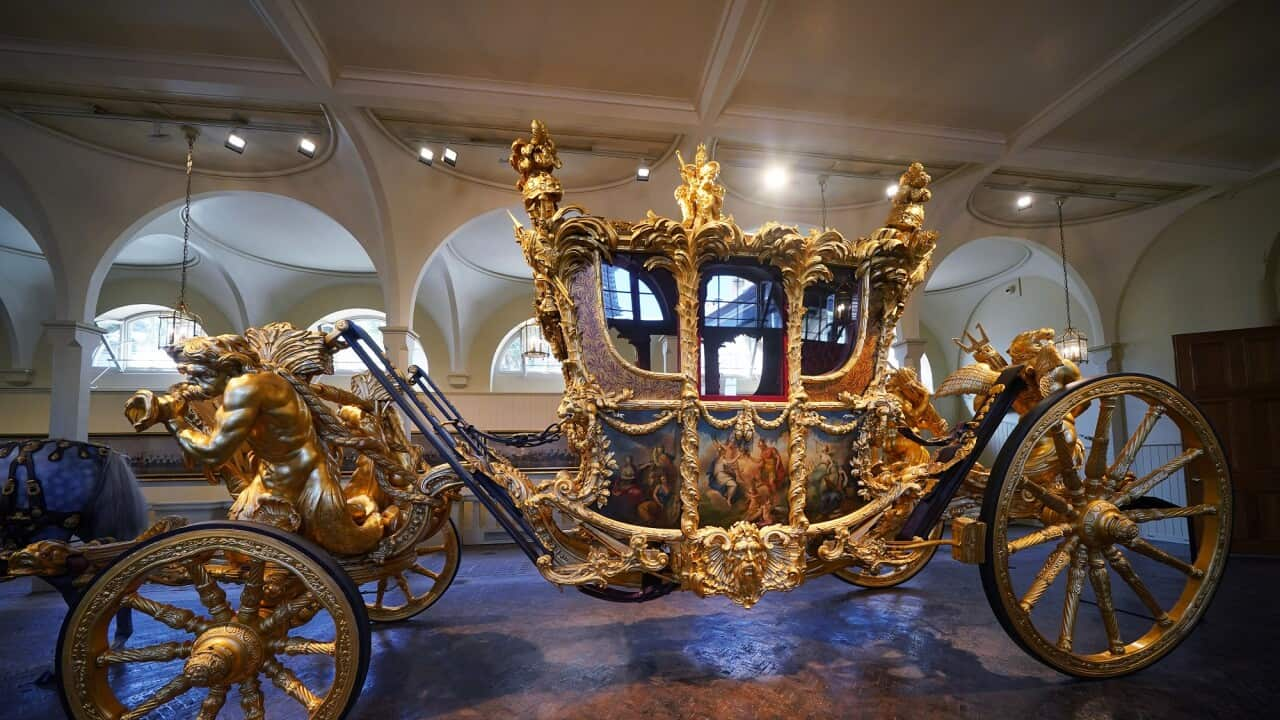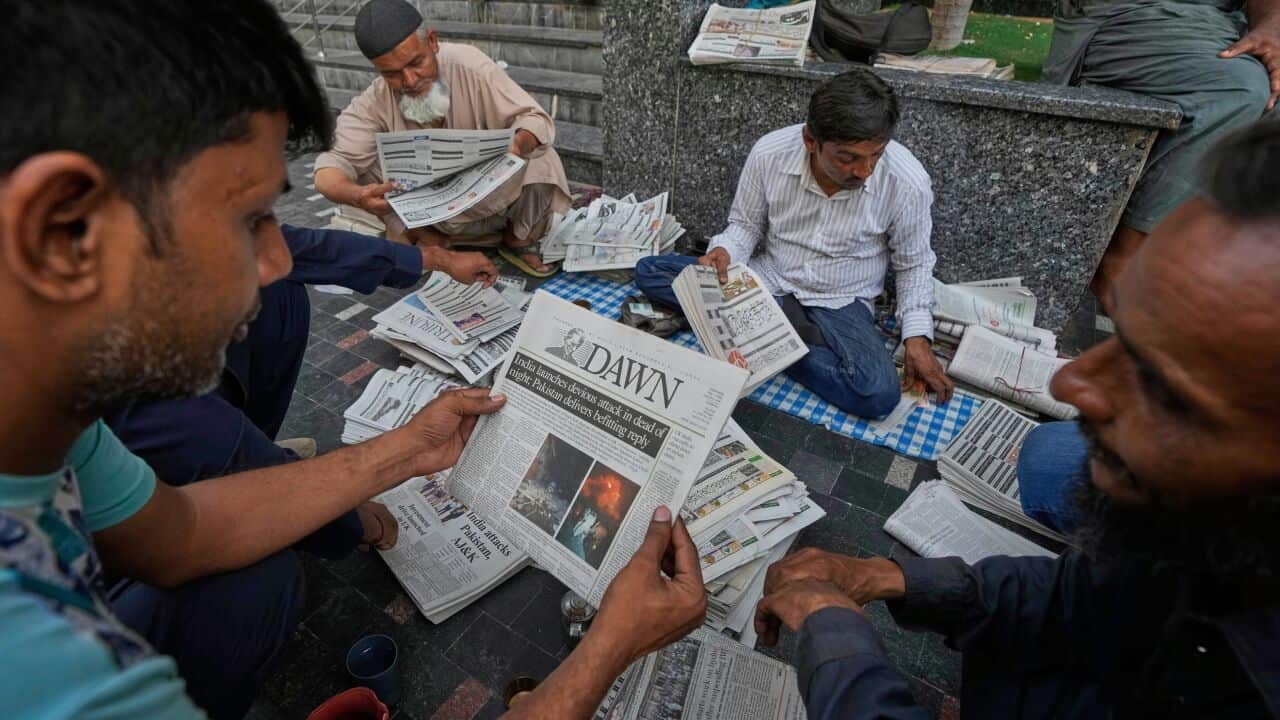Key Points
- Having grown up on big farming estates, the royal family has a long history of passion and interest in biodiversity, sustainability and environmental issues.
- Dr SS Gosal, Vice-Chancellor of PAU, shares memories of King Charles's captivation with high-yielding crop varieties, soil and water resources, and dairy farming.
- As the world awaits King Charles III's Coronation as the 40th Monarch, staff at Punjab Agricultural University (PAU), Ludhiana (India), nostalgically recall the Royal's visit to the campus.
During his visit to India in 1980, the then Prince of Wales, Prince Charles, known for his keen interest in sustainable and organic farming, visited Punjab Agriculture University (PAU).
Agri-economist, Dr Satbir Singh Gosal, Vice-Chancellor of PAU, who was a PhD student at the university at that time, was among the dignitaries who saw Prince Charles' curiosity about the so-called 'green revolution' happening in Punjab at that time.

Credit: Mr AP Singh.
"As milk production in India is based on buffalos, unlike in European countries where cows are the main source of milk production, (the then) Prince Charles was inevitably delighted when he saw buffalos and (learned about the) buffalo breed improvement program."

Credit: Mr AP Singh.
In 2010, he published 'Harmony: A New Way of Looking at Our World', which explained that if the topics of agriculture, architecture, urbanism, natural ecosystems, and healthcare were not taken into account, '...the Earth's precious life-support systems will start to wobble and eventually may collapse'.
So what brought the British Monarch to Punjab?
Dr Gosal said: "Punjab is just 1.5 per cent (of the) area of India, but we (contribute) 51 per cent of the country's wheat needs, and PAU is considered as the mother of the 'green revolution' in India."
"In the mid-1960s, the university bred new wheat varieties that amplified the wheat revolution in India, which brought the now King himself to the university."
An awardee of the Royal Society London Bursary, Ds Gosal, who did some of his postdoctoratal studies at the University of Nottingham and carried out his research at the John Innes Centre, Norwich, said he believed England had a special bond with Punjab because of its status of being the farming state of India.

Prince Charles, Prince of Wales, visits Hansali Farm to see the work of the Punjab Organic Farming Council on the third day of his four-day visit to India on 4 October, 2010, in Chandigarh, India. Credit: Aditya Kapoor/Getty Images
"As King Charles III prepares to ascend the throne, I believe that his commitment to tackling global warming and environmental issues, as evidenced by his past interests, will be at the forefront of his reign."
King Charles III will be crowned Australia's King on Saturday, 6 May AEST, and it's been 70 years since the United Kingdom prepared for a coronation.
Prime Minister Anthony Albanese, Governor-General David Hurley, state governors, alongside a group of 'outstanding citizens' selected by Mr Albanese to represent Australia, are set to attend the Coronation ceremony.
For more details, click on the audio player to hear the interview in Punjabi.
LISTEN TO

This interview with Dr SS Gosal in Punjabi.
06:41








